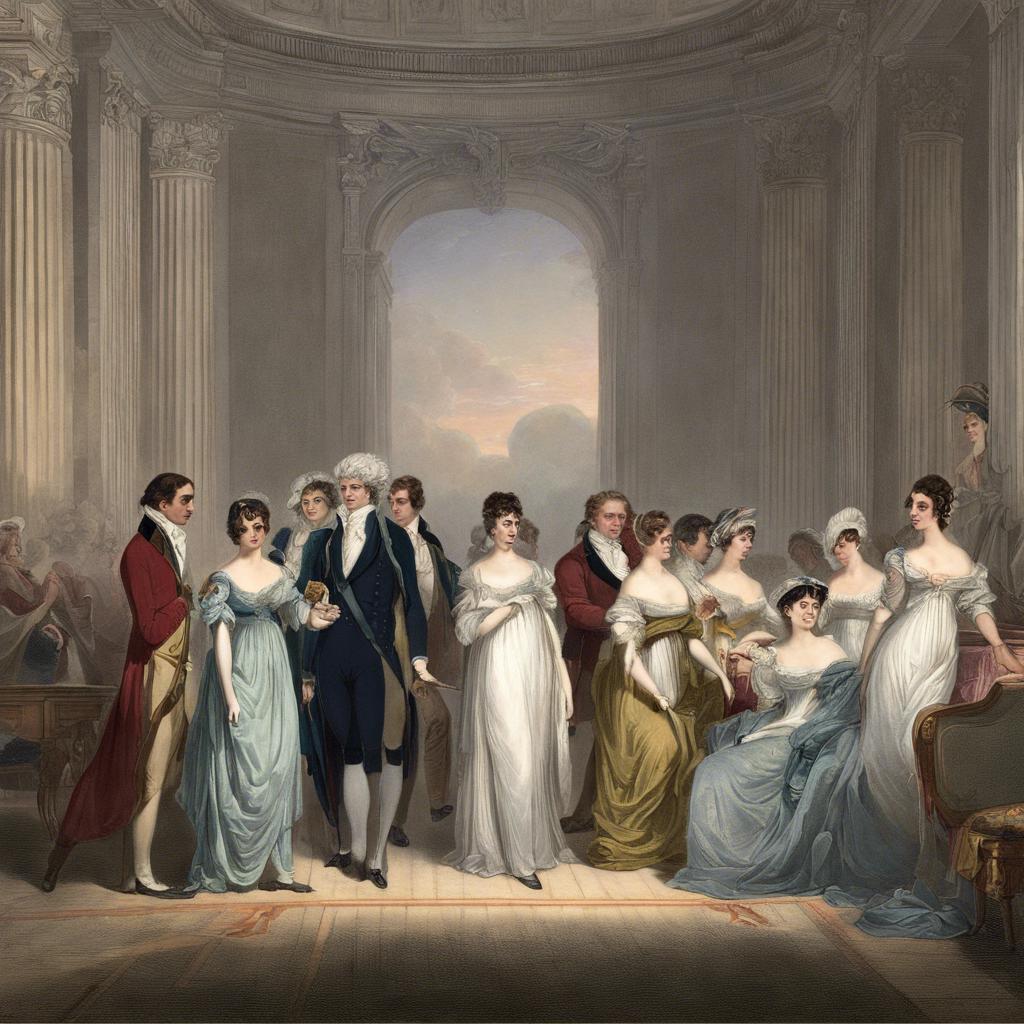The Regency Era, a period marked by social, political, and cultural upheaval, began in Britain on a balmy summer day in February 1811. As King George III’s mental health began to decline, his son, Prince George, was appointed as his regent, thus ushering in a new era of power and influence. This pivotal moment in history not only transformed the monarchy but also had far-reaching implications for society at large. Join us as we delve into the origins of the Regency Era and explore its lasting impact on the course of British history.
Step Into the World of Cheryl Bolen
Dive into the enchanting stories of love, intrigue, and elegance set in the Regency Era. Cheryl Bolen's novels offer timeless romance and captivating tales that will leave you wanting more.
Explore Cheryl Bolen's Books Now
The Dawn of the Regency Era: Exploring Its Origins and Significance
During the early 19th century, the Regency Era marked a unique period in British history that was characterized by elegance, sophistication, and cultural innovation. The era officially began on February 5, 1811, when King George III was deemed unfit to rule due to his mental illness, leading his son, the Prince of Wales, to become Prince Regent. This period of regency lasted until 1820, upon the death of King George III, when the Prince Regent ascended to the throne as King George IV.
The origins of the Regency Era can be traced back to the French Revolution and the Napoleonic Wars, which brought about political and social upheaval across Europe. In Britain, the Regency period was a time of relative peace and stability, allowing for a flourishing of arts, literature, and fashion. It was a time of great change and transition, as the country moved away from the strict societal norms of the Georgian era towards a more liberal and artistic mindset.
The significance of the Regency Era lies in its cultural impact on British society, particularly in the realms of architecture, literature, and fashion. The elegant Georgian style gave way to the more ornate and romantic Regency style, with its emphasis on symmetry, classicism, and intricate detailing. This era also saw the rise of Romantic literature, with authors such as Jane Austen and Lord Byron capturing the spirit of the times in their works. the Regency Era remains a fascinating period in history that continues to captivate our imaginations today.
Key Events Leading to the Establishment of the Regency Era
The Regency Era, a period in British history from 1811 to 1820, was marked by key events that led to the establishment of this unique time in royal governance. These events were pivotal in shaping the political landscape and cultural atmosphere of the era.
-
Illness of King George III: The onset of King George III’s mental health issues in 1810 played a significant role in the establishment of the Regency Era. As the king became increasingly unable to fulfill his duties, Parliament passed the Regency Act of 1811, placing power in the hands of his son, the Prince of Wales, who would later become King George IV.
-
Napoleonic Wars: The ongoing Napoleonic Wars, which lasted from 1803 to 1815, also played a crucial role in the establishment of the Regency Era. The conflict with Napoleon Bonaparte and his forces had far-reaching implications for Britain, both politically and economically, influencing the decision-making processes during this turbulent time.
-
Cultural Shifts: The Regency Era was also characterized by significant cultural shifts, particularly in the realms of literature, art, and fashion. The emergence of Romanticism as a literary movement, along with the popularity of Regency architecture and design, reflected the changing social values and aesthetics of the period. These cultural developments helped define the Regency Era as a unique chapter in British history.
| King George III’s Illness | 1810 |
| Napoleonic Wars | 1803-1815 |
| Cultural Shifts | Early 19th Century |
Understanding the Socio-Political Climate of the Regency Period
The Regency Era, which spanned from 1811 to 1820, was a period in British history characterized by a unique socio-political climate. During this time, the country was under the rule of the Prince Regent, who later became King George IV. The Regency Era marked a transition from the Georgian era to the Victorian era, and it was a time of significant social, cultural, and political change.
One of the key factors influencing the socio-political climate of the Regency Period was the Napoleonic Wars. The ongoing conflict with France had a profound impact on British society, shaping attitudes towards war, patriotism, and national identity. The war also had economic consequences, leading to inflation, shortages, and social unrest.
Additionally, the Regency Era was marked by significant social change, with the rise of the industrial revolution transforming the landscape of British society. Urbanization, technological advancements, and changing social structures all played a role in shaping the society of the time. These changes had a profound impact on the political landscape, as new ideas and movements began to emerge.
Recommended Reading for a Deeper Understanding of Regency Era Start Date
For those looking to delve deeper into the fascinating world of the Regency Era start date, there are several recommended reading options that can provide valuable insights and context. These books offer a wealth of information on the political, social, and cultural landscape of this pivotal time in history.
One highly recommended book is “Jane Austen’s England: Daily Life in the Regency Period.” This insightful work by Roy and Leslie Adkins provides a detailed look at the everyday experiences of people living in England during the Regency Era. From fashion and etiquette to food and entertainment, this book paints a vivid picture of life during this time.
Another essential read is “The Regency Years: During Which Jane Austen Writes, Napoleon Fights, Byron Makes Love, and Britain Becomes Modern” by Robert Morrison. This comprehensive account delves into the key events and personalities that shaped the Regency Era, shedding light on the cultural and political transformations that took place.
The Conclusion
the Regency Era officially began on February 5, 1811, when King George III was formally deemed unfit to rule due to his mental illness. This marked a significant shift in British monarchical history, paving the way for the reign of the Prince Regent, who would later become King George IV. The Regency Era brought about a period of cultural, political, and social change, leaving a lasting impact on British society. As we continue to study and explore this fascinating time in history, let us remember the pivotal moment when the regency era began and the legacy it left behind.


